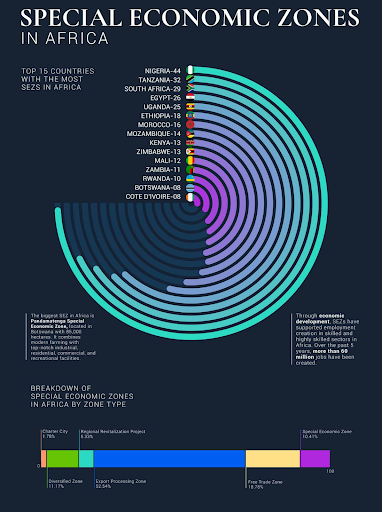Global food insecurity is reaching its highest point in decades, with crop prices climbing to record highs in the first half of 2022. The crisis lies in several overlapping factors, including surging energy prices, limitations on the export of fertilisers, holdover Covid-era supply chain disruptions, and the ongoing war between Russia and Ukraine.
While most of the world will face prohibitive costs and food shortages, the developing world — particularly Africa — faces high food insecurity risks over the course of the next few years.
Advertisement
In Africa, past crises have led to a sharp increase in hunger and social unrest. For most of Africa, the current crisis is projected by organisations such the UN to be much more severe. Agricultural productivity in Sub-Saharan Africa is generally low. As a result, most African countries are net food importers, reliant on intercontinental trade to feed their growing populations.
Without addressing the foundational issues — low labour and land productivity, a general lack of infrastructure, poor access to credit and ineffective government policies — such countries will always be reliant on the rest of the world for food.
SEZs as a catalyst for agricultural productivity
A potential long-term solution to the problem of agricultural productivity in Africa lies in the utilisation of special economic zones (SEZs) to support the development of a more robust agriculture industry — particularly agribusiness, but also farming itself, as I believe there will be an uptick in the number of zones that also host agricultural activities and are designed to augment the efficiency of farmers.
Although there are many types of SEZs in Africa, most of the active African zones are set up to simplify regulations, kickstart industrial development and grow exports. We estimate that SEZs have contributed to the creation of 60 million jobs in Africa over the past five years.
In the face of this potentially devastating food crisis, African SEZ frameworks should be expanded to drive investment and innovation into agribusiness sectors. While there are often political barriers to passing such policies, the present circumstances are dire. The basic framework for a zone overhaul is well established by successful case studies, and is based on the following pillars:
- Allow private developers to establish and operate SEZs under government oversight.
- Provide incentives within the zones according to international best practices outlined by organizations such as UNCTAD and the World Bank — with particular emphasis on governance, legal reform and banking.
- Ensure government support for the development of new infrastructure with linkages to existing infrastructure and cities.
- Forge connections between zone enterprises and universities/technical institutions to support knowledge transfer and vocational training.
- Facilitate affordable housing and community support elements that help diversify local, regional and national economies.
- Allow SEZs to fail if they cannot correspond to market demand.
This framework creates the minimum-viable-environment for new investors and developers in African agriculture. Zones operating under these conditions can address the key barriers to agribusiness development by bypassing prohibitive regulations, supporting infrastructure development and de-risking investments for financial institutions.
In the face of this potentially devastating food crisis, African SEZ frameworks should be expanded
Preston Martin, co-founder and president, Adrianople Group
There are already examples of SEZs supporting expansions of agro-processing and other adjacent industries. Africa’s wealthiest man, Aliko Dangote, completed a $2.5bn fertiliser plant in March, designed to produce three million tons of urea per year. The plant is situated within the Lekki Free Trade Zone in Nigeria.
This approach, however, is not without risks. Historically, African SEZs have had mixed success: some have received massive amounts of government spending, but failed to generate the promised results. Some of them also raised eyebrows with regard to their land expropriation practices. Elsewhere, zones have been afflicted with major corruption allegations.
SEZs are not a one-size-fits-all solution to Africa’s agricultural productivity issues. Even under stable macroeconomic conditions, SEZs must implement established best practices that are customised to fit local needs in order to succeed.
Perhaps more than ever before, there is clear and present demand for increased agricultural productivity across the world. This will undoubtedly take years to accomplish. With the necessary governance and legal reforms implemented in SEZs, African countries can kickstart more investments and development in agricultural business infrastructure.
In the short term, if world food experts are correct, millions of Africans will soon face famine. In the long-term, African SEZs can support the development of robust agricultural systems to ensure this never happens again.
Preston Martin is co-founder of business intelligence advisory firm Adrianople Group
